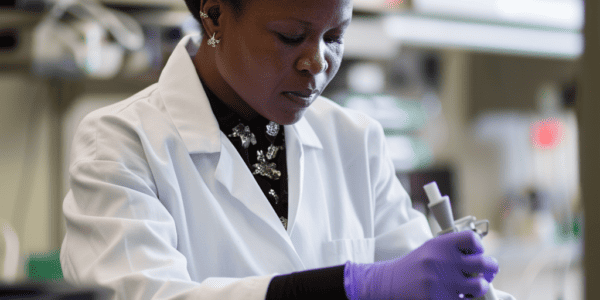Fungi from Peat Bogs Show Promise in Treating Tuberculosis
Recent research has discovered fungi from peat bogs that produce substances capable of killing Mycobacterium tuberculosis, the bacterium responsible for tuberculosis (TB). Led by Neha Malhotra from the NIH, this groundbreaking study highlights the potential for new, more effective treatments for TB, which claims over a million lives annually. By targeting crucial biological processes, these natural compounds could lead to shorter treatment regimens and improved patient adherence, offering hope in the fight against this global health crisis.
Innovative Research on Tribbles Proteins Offers Hope Against Antibiotic-Resistant Tuberculosis
Tuberculosis (TB) poses a significant global health threat, claiming 1.5 million lives annually, exacerbated by antibiotic-resistant strains. Researchers at the University of Sheffield are exploring the Tribbles protein family to enhance immune responses against TB. Their groundbreaking study reveals that Tribbles1 could be key in developing novel therapies that boost the body’s defenses, offering hope in the fight against antibiotic resistance and improving global TB management.
Marine Sponge Microbe Reveals Insights into Tuberculosis Evolution
Recent research reveals a marine sponge bacterium, Mycobacterium spongiae, shares 80% of its genetic material with Mycobacterium tuberculosis, offering insights into TB evolution. This discovery, made by scientists from the University of Queensland, could lead to innovative treatments and preventative measures against tuberculosis, a major global health threat.
New Vaccine Trials Bring Hope in Fight Against Tuberculosis
Tuberculosis, known as TB, has reemerged as the world’s biggest infectious killer, raising concerns about the ongoing battle against this ancient disease. Health experts are now turning their hopes towards long-awaited trials for a potential new vaccine that could revolutionize the fight against TB.
Tracking Down Tuberculosis
Tracking Down Tuberculosis Improvements in screening and diagnosis could help to eradicate this curable disease. By Neil Savage Mireille Kamariza is working on an affordable test for tuberculosis. Credit: Faranak Emami/Samueli School of Engineering, UCLA Growing up in Burundi, a…





